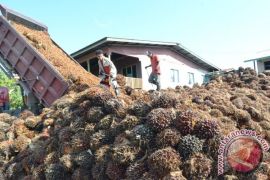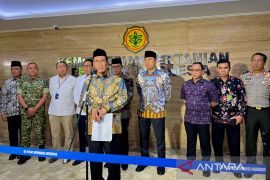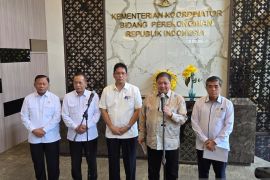It is like rubbing salt to the wound. The ban on bulk oil turns down MSMEs, while large businesses are growing in the market, even forming an oligopoly market.Jakarta (ANTARA) - The policies on cooking oil should not be disadvantageous to Micro, Small, and Medium Enterprises (MSMEs), such as a prohibition on selling bulk oil, to be imposed next year, a legislator Amin Ak, stated.
The ban on selling bulk oil to be imposed since January 1, 2022, can likely have a suppressive effect on MSMEs since bulk oil businesses are generally a household industry, Amin Ak, a member of Commission VI of the House of Representatives, remarked in a written statement here on Friday.
Amin noted that these household industries do not have raw material supplies, and the price of bulk cooking oil is strongly influenced by the price of crude palm oil or CPO.
"They also do not have a long-term MoU (Memorandum of Understanding) like the entrepreneurs, who sell packaged cooking oil, and who are mostly large-scale business players. Hence, when the crude palm oil price rises, the price of bulk oil immediately inflates," he explained.
The House member expounded that while the bulk oil price rises, the price of packaged cooking oil usually remains relatively stable.
"It is like rubbing salt to the wound. The ban on bulk oil turns down MSMEs, while large businesses are growing in the market and even forming an oligopoly market," he stressed.
Regarding the lack of hygiene and possible contamination of bulk oil, he emphasized that the government should not prohibit, but instead, make regulations to control the trade of bulk oil.
The necessary regulations comprise managing the distribution of anti-contaminated bulk oil, strict sanctions on those selling waste cooking oil, and its packaging must follow the standards.
"It is the government's obligation to provide guidance to MSMEs and protect the people's businesses from major threats, such as monopolistic practices or oligopolies. In an economic situation that is still affected by the pandemic, the lower class needs cheap cooking oil products, considering that oil is a basic requirement," he expounded.
Furthermore, he reminded of the importance of regulations in the upstream (palm oil sector) as the raw material for cooking oil.
Earlier, the Ministry of Trade had informed that as much as 11 million liters of cooking oil had begun to be distributed to 45 thousand national retailers in an effort to deal with the increase in commodity prices.
The economically priced cooking oil was being sold in 45 thousand outlets of the Indonesian Retail Entrepreneurs Association (Aprindo) across Indonesia at a price of Rp14 thousand per liter, with a maximum purchase of one liter.
Related news: Ministry distributes 11 million liters of cooking oil to retailers
Related news: Call for closer gov't-industry collaboration for cooking oil stocks
Related news: Cooking oil, eggs, and cigarettes drive inflation in August: BI
Translator: M Rahman, Kenzu T
Editor: Sri Haryati
Copyright © ANTARA 2021












